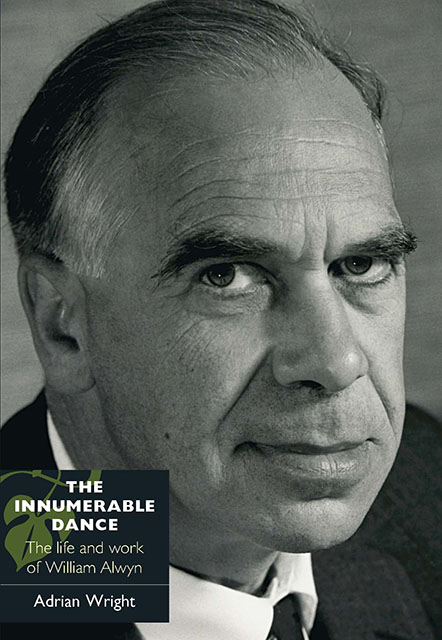Book contents
- Frontmatter
- Contents
- Illustrations
- Preface and Acknowledgements
- Introduction
- 1 Early Closing
- 2 The Music of Northampton
- 3 A Number of Scotsmen
- 4 Olive
- 5 Union and Exile
- 6 A Purpose for Cinema
- 7 A War of his Own
- 8 Is Your Journey Really Necessary?
- 9 A Coming British Woman Composer
- 10 Towards a Festival
- 11 Questions of Inspiration
- 13 The Late Romantic
- 14 E-Day
- 15 Symphonic Reflections
- 16 Soundless Music
- 17 The Other Suffolk Composer
- 18 The Blythburgh Operas
- 19 The Stillness
- 20 Living and Learning
- 21 Precious Toy
- Epilogue
- Notes
- List of Alwyn’s Works
- Discography
- Bibliography
- General Index
- Index of Alwyn’s Works
9 - A Coming British Woman Composer
Published online by Cambridge University Press: 10 March 2023
- Frontmatter
- Contents
- Illustrations
- Preface and Acknowledgements
- Introduction
- 1 Early Closing
- 2 The Music of Northampton
- 3 A Number of Scotsmen
- 4 Olive
- 5 Union and Exile
- 6 A Purpose for Cinema
- 7 A War of his Own
- 8 Is Your Journey Really Necessary?
- 9 A Coming British Woman Composer
- 10 Towards a Festival
- 11 Questions of Inspiration
- 13 The Late Romantic
- 14 E-Day
- 15 Symphonic Reflections
- 16 Soundless Music
- 17 The Other Suffolk Composer
- 18 The Blythburgh Operas
- 19 The Stillness
- 20 Living and Learning
- 21 Precious Toy
- Epilogue
- Notes
- List of Alwyn’s Works
- Discography
- Bibliography
- General Index
- Index of Alwyn’s Works
Summary
Doreen Carwithen’s career as a composer may well have happened without the influence of Alwyn, but it was almost certainly shaped by it. Alwyn’s policy at the Royal Academy was to encourage particularly talented students to try composition, even when he was required to only teach them harmony. When Carwithen showed him some of her first piano compositions, her harmony course was changed to Composition, possibly when she returned to the Academy full-time in 1942, having worked out her compulsory war service as a teacher at Chilterns School. A string quartet was the first substantial work that came from Alwyn’s guidance. This was originally to have been played by Academy students but their technique proved inadequate for the work’s rhythmic complexities, and the first performance was given by the Zorian Quartet at the Duke’s Hall on 5 March 1945. Vaughan Williams was in the audience, and was complimentary, although he criticised her use of ponticello in the coda, a ‘nasty noise’. In fact it was an assured debut.
As a student in the Royal Academy chamber music class I played second cello in the great Schubert Quintet. This cello playing taught me that the lower strings – viola and cello in particular – can be used most expressively, so much of my writing includes long, flowing melodies, using the whole range of the instrument. The cello is particularly telling in its upper register, where it has its own special quality of sound. So my quartets really use all the instruments equally – not just a tune on the violin and a rather dull accompaniment from the rest!
In 1946 there was a flurry of song-writing, including a setting of Walter de la Mare’s poem The Ride-by-Nights. The BBC’s Music Advisory Panel was unimpressed when the song was submitted for broadcasting consideration some years later: ‘All out of stock, but doubtless effective, providing the singer does not expect to end on her top note’; ‘I would describe this song as nothing more nor less than a conventional ballad-setting of vivid words’; ‘I find it to be a very mediocre and poverty stricken effort, and entirely lacking in imagination!’ There was to be no more vocal music.
- Type
- Chapter
- Information
- The Innumerable DanceThe Life and Work of William Alwyn, pp. 104 - 113Publisher: Boydell & BrewerPrint publication year: 2008



